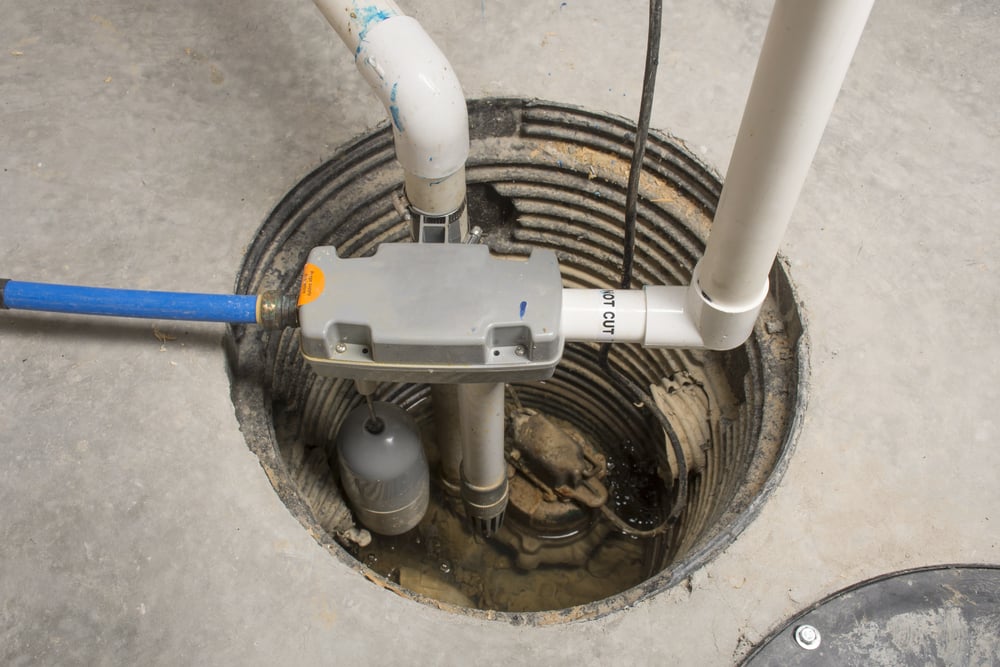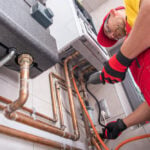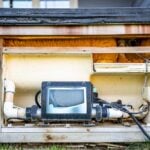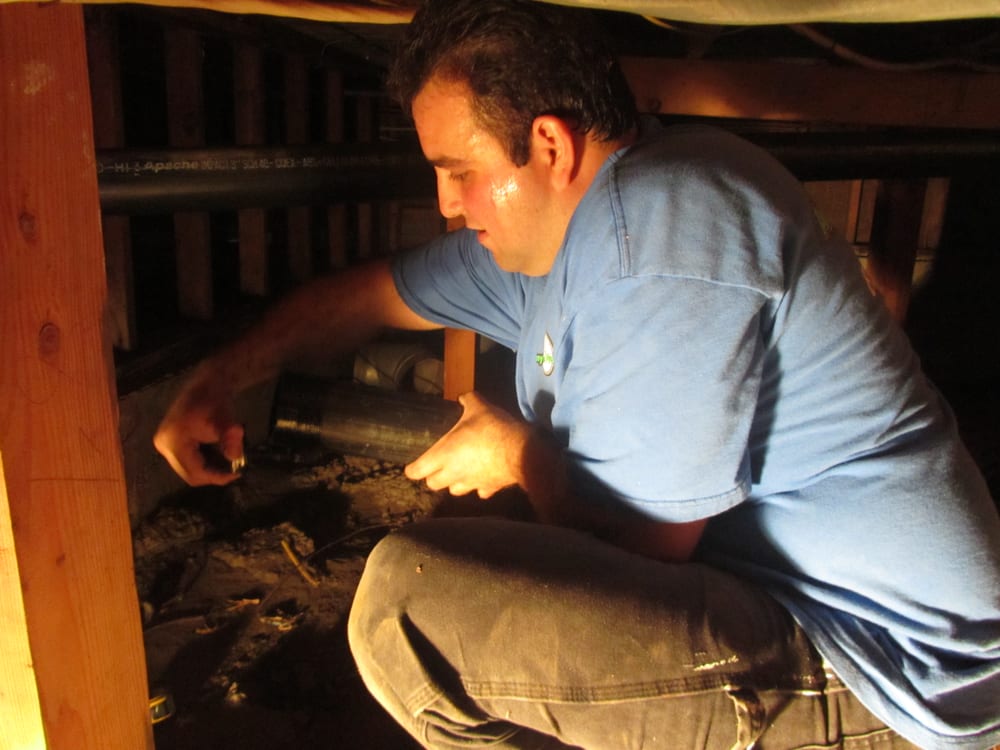
The Role Of Sump Pumps In Protecting Your Basement
Introduction
Basements are fantastic spaces in our homes. They can be game rooms, storage areas, or even cozy family rooms. But, they also come with their own set of challenges, especially when it comes to water problems. Enter the hero of our story: the sump pump. If you’ve ever wondered about the role of sump pumps in protecting basement, you’re in the right place. These devices are crucial in keeping our basements dry and damage-free. Let’s dive into why they’re so essential and how they work.
Understanding Basements and Water Issues
Basements, being below ground level, naturally face the brunt of water-related issues. Whether it’s groundwater seeping in, heavy rainfalls, or just poor drainage systems, basements are often at risk of flooding and moisture build-up. This is where installing a sump pump becomes a game-changer.
But what types of sump pumps are there? Well, there are mainly two types: pedestal and submersible. The pedestal pump has its motor out of the water, while the submersible pump is entirely underwater. The type you choose depends on your basement’s needs and the amount of water it typically faces.
Now, you might think, “I’ve never had water issues, so I’m good, right?” Not necessarily. Even if you haven’t faced a flood, minor moisture can lead to mold growth, which can harm your health and damage your belongings. So, it’s always better to be safe than sorry. Make sure you assess your basement’s risk and consider installing a sump pump if you haven’t already.
In the next sections, we’ll dive deeper into how these pumps work and why they’re a must-have for every homeowner with a basement.
What is a Sump Pump?
A sump pump might sound like a complex piece of machinery, but its purpose is straightforward: to keep your basement or crawl space dry. At its core, a sump pump is a device designed to pump out excess water from your basement, redirecting it away from your home to prevent flooding and moisture accumulation.
So, where does this device sit? In a specially constructed spot called a sump pit. This pit is typically located at the lowest point of your basement or crawl space. When water starts to enter the basement, it naturally flows towards this lowest point. The sump pit collects this water, and when the water reaches a certain level, the sump pump kicks into action, pumping the water out and away from your home.
There are different types of sump pumps, but the most common are submersible sump pumps and pedestal pumps. Submersible sump pumps are designed to function underwater. They sit inside the sump pit, and when water levels rise, they start working without any noise or fuss. On the other hand, pedestal pumps have their motor outside the water, standing above the sump pit. They’re a bit noisier but can be more accessible for maintenance.

How Does a Sump Pump Work?
The magic of sump pumps lies in their ability to detect rising water levels and respond immediately. But how exactly does this process work?
First, let’s talk about the sump pit. As mentioned, it’s the collection point for any water that makes its way into your basement or crawl space. Think of it as a watchtower. It’s always on the lookout for unwanted water. Once the water in the sump pit reaches a certain level, the sump pump is triggered to start.
Submersible sump pumps, being underwater, have a float switch. When water levels rise, the float switch is activated, turning on the pump. The pump then begins to move the water through a pipe, directing it away from your home. This pipe usually has a one-way valve called a check valve, ensuring water doesn’t flow back into the basement.
Now, you might wonder, “What if there’s a power outage during a storm?” That’s a valid concern. Basement flooding often coincides with storms, which can lead to power outages – a nightmare scenario if your sump pump can’t operate. Thankfully, many sump pumps come with battery backups. So, even if the power goes out, your sump pump can help keep things dry.
But what about potential sump pump failures? Like all machines, sump pumps aren’t immune to wear and tear. Regular maintenance is crucial. A sump pump failure during a heavy rain could lead to basement flooding, causing damage to your belongings and promoting mold and mildew growth. Mold and mildew not only damage your home but can also pose health risks, making it even more essential to ensure your sump pump is always in top shape.
It’s also worth noting that while sump pumps are fantastic at handling gradual water accumulation, they might struggle with sudden, large volumes of water, like what you’d see with a burst pipe. In such cases, it’s crucial to address the root cause of the water influx.
In conclusion, sump pumps play a vital role in protecting our homes. They’re the silent guardians of our basements, tirelessly working to ensure we don’t wake up to a flooded mess. Whether you’ve faced basement flooding in the past or just want to be prepared, investing in a reliable sump pump is a wise decision. With regular maintenance and a keen eye for potential issues, you can ensure your basement remains dry, safe, and free from the threats of mold and mildew.
Benefits of Having a Sump Pump
Basements are often the unsung heroes of our homes. They provide storage, can be transformed into additional living spaces, and sometimes, they’re the foundation of our houses. But, they’re also vulnerable to the whims of nature, especially water. This is where a sump pump system steps in, offering a plethora of benefits to homeowners.
Prevent Basement Flooding
The primary role of sump pumps is to prevent basement flooding. Whether it’s due to heavy rainfall, melting snow, or a rising water table, basements can quickly become inundated. A flooded basement can be a homeowner’s worst nightmare, leading to damaged belongings, costly repairs, and a lot of stress. By efficiently redirecting water away from your home, sump pumps ensure that you don’t have to deal with the aftermath of a flood.
Protect Your Home’s Foundation
Continuous water exposure can weaken your home’s foundation over time. Water can erode the soil around the foundation, leading to cracks and structural damage. By keeping the basement dry, sump pumps play a crucial role in maintaining the integrity of your home’s foundation.
Increase Property Value
A dry basement is a valuable asset. Homes with effective sump pump systems often have a higher market value compared to those without. Potential buyers are more likely to invest in a property that’s equipped to handle water issues, ensuring they won’t have to deal with a flooded basement in the future.
Reduce Mold and Mildew Growth
Damp environments are breeding grounds for mold and mildew. These fungi can not only damage your home but also pose health risks. Sump pumps, by keeping basements dry, help in reducing the chances of mold and mildew growth, ensuring a healthier living environment.
Peace of Mind
Perhaps one of the most significant benefits of having a sump pump is the peace of mind it offers. Knowing that your home is protected from potential water damage, especially during heavy rainfalls or snow melts, is invaluable.

Signs You Need a Sump Pump
While the benefits of having a sump pump are clear, how do you know if your home needs one? Here are some telltale signs that it might be time to invest in a sump pump system.
Frequent Flooding
If your basement has a history of flooding, especially during rainy seasons, it’s a clear indication that you need a sump pump. Even if the flooding is minor, it’s better to be proactive and prevent future incidents.
Dampness and Moisture
You don’t need to have a flooded basement to consider getting a sump pump. Persistent dampness or moisture in the basement can lead to mold growth and damage your belongings. Submersible pumps are especially effective in such scenarios, continuously keeping the water at bay.
Living in a Flood-Prone Area
If your home is located in an area that’s prone to flooding, it’s wise to have a sump pump system in place. This is especially true for homes built on flat terrains or areas with high water tables.
Aging Sump Pump
If you already have a sump pump but it’s been years since you installed it, consider checking its efficiency. Regular maintenance and testing are crucial. Over time, like all machines, sump pumps can wear out. If the pump fails during a crucial time, it defeats its purpose. Ensure it’s equipped with a ground fault circuit to prevent electrical hazards.
Odors and Mold Growth
If you notice a musty smell in your basement or visible mold growth, it’s a sign of excessive moisture. A sump pump can help address the root cause by keeping the basement dry.
Sump pumps are more than just water-redirecting devices; they’re essential tools to protect your home from potential water damage. Whether you’ve faced flooding issues in the past or want to be prepared for the future, a reliable sump pump system is a worthy investment. Regular maintenance, understanding the signs of a failing pump, and choosing the right type for your home are crucial steps in ensuring your basement remains dry and safe.
Maintenance and Care for Sump Pumps
A sump pump is a homeowner’s first line of defense against water damage. But like all machines, it requires regular care to function optimally. Here’s a guide to ensuring your sump pump works efficiently for years to come.
Routine Checks
At least once a month, inspect your sump pump. Make sure the area around it, especially the sump pit on your basement floor, is free from debris that could obstruct the pump’s operation. Regularly checking ensures you catch and address minor issues before they escalate.
Testing the Pump
Every few months, pour a bucket of water into the sump pit. This will trigger the sump pump, allowing you to see if it’s working correctly. If the pump doesn’t start, or if it doesn’t drain the water quickly, it might be time for some maintenance or even a replacement.
Inspect the Discharge Pipe
The discharge pipe plays a crucial role in directing water away from your home. Ensure it’s always clear of blockages. During winter, make sure it doesn’t freeze, as this can prevent the sump pump from draining water, leading to potential overflows.
Battery Backup and Ground Fault Circuit Interrupter (GFCI)
Power outages often accompany heavy storms – just when you need your sump pump the most. Ensure your pump has a battery backup so it can continue working even during power failures. Additionally, your sump pump should be connected to a ground fault circuit interrupter (GFCI) to protect against electrical shocks.
Choosing the Right Sump Pump for Your Home
With various sump pumps available, selecting the right one can seem daunting. Here’s a guide to making an informed choice.
Determine the Need
The first step is understanding the level of water threat your basement faces. If your basement floor frequently has minor dampness, a basic sump pump might suffice. However, if you’ve experienced significant flooding, you’ll need a more robust system.
Submersible vs. Pedestal Pumps
Submersible pumps are placed inside the sump pit and are quieter. They’re ideal for basements used as living spaces. Pedestal pumps, on the other hand, have their motor outside the pit, making them easier to maintain but a bit noisier.
Battery Backup
Given the importance of a sump pump during storms, opting for a model with a battery backup is a wise choice. This way, you prevent basement flooding even during power outages.
Check the GFCI
Ensure the model you choose can be connected to a ground fault circuit interrupter. This is a safety feature that’s crucial for any electrical device in damp environments.

Common Misconceptions About Sump Pumps
With any home appliance, myths abound. Let’s debunk some common misconceptions about sump pumps.
“Once Installed, I Can Forget About It”
While sump pumps are low maintenance, they aren’t no maintenance. Regular checks and testing are vital to ensure they’re always ready to protect your home.
“All Sump Pumps Are the Same”
There are various types of sump pumps, each designed for specific needs. From the power source to the way the pump operates, differences abound. It’s essential to choose one that fits your home’s requirements.
“A Sump Pump is the Only Way to Prevent Basement Flooding”
While sump pumps are effective, they’re just one piece of the puzzle. Proper home grading, functioning gutters, and good drainage all play roles in keeping your basement dry.
Wrapping It Up
Basements, for many, are more than just storage spaces. They’re extensions of our homes, places where memories are made, and valuables are stored. Protecting them from water damage is paramount. Sump pumps emerge as the unsung heroes in this scenario, tirelessly working behind the scenes to keep our basements dry and safe. From understanding how they operate to recognizing their importance, it’s clear that these devices are essential for every homeowner with a basement or crawl space. Regular maintenance, coupled with a keen awareness of how they function, can ensure they serve us effectively for years. In the battle against unwanted water, moisture, and the potential damage they bring, a sump pump is a homeowner’s best ally. Investing in one is not just about protecting a space; it’s about safeguarding memories, possessions, and the very foundation of our homes.







